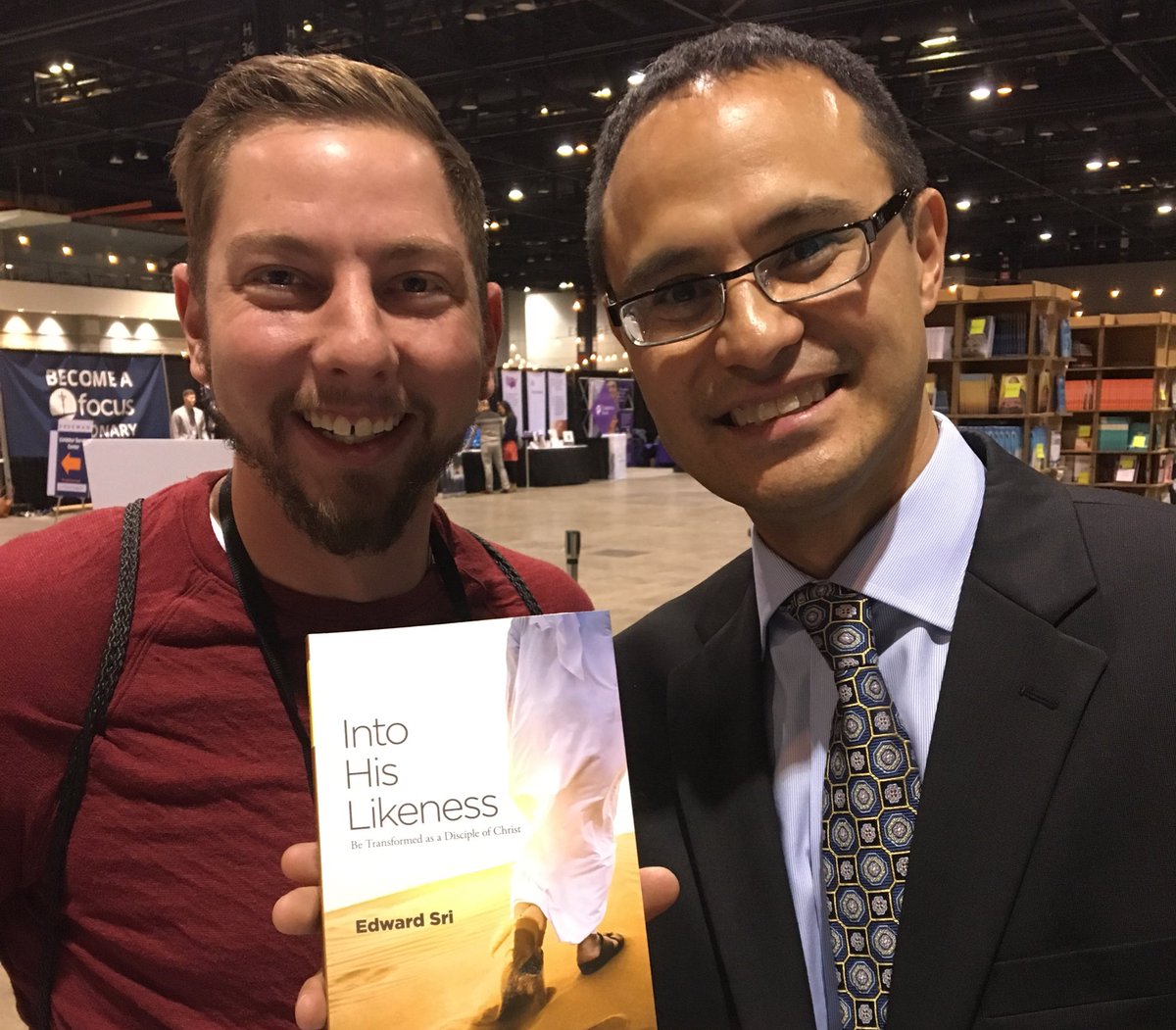

The AuthorĮdward Sri a professor of theology and Vice President of Mission and Outreach at the Augustine Institute in Denver, Colorado. "The Eucharist: Is the Real Presence Biblical?" Edward Sri blog (December 28, 2014).
EDWARD SRI LOVE UNVEILED SERIES
See part one in this series " Did Jesus Really Want us to Eat His Body?"Įdward Sri. In Holy Communion, we have the most profound union with Our Lord Jesus Christ that we can have here on earth. That's the life-transforming power of the Eucharist in our lives. He wants to fill us with his life and heal us of our wounds, strengthen us in his love change us to become more and more like him. So by giving us his Body and Blood in the Eucharist, Jesus is giving his very life to us, and he wants to unite himself to us in the most intimate way possible. But we still must ask, why? In the Jewish, Biblical worldview of Jesus' day, the body is an expression of the whole person and the life is in the blood. So it's clear that Jesus wants to give us his Body and Blood in the Eucharist. He didn't chase after them, saying, "Wait! You misunderstood me." They understood quite well that Jesus was speaking about eating his flesh and blood, and they rejected this teaching. Many of his disciples rejected Jesus over this teaching and left him (John 6:66). Indeed, Christ's words on the Eucharist were too much for some of them to believe. So challenging is this teaching that even many of Christ's disciples are bewildered, saying "This is a hard saying who can listen to it?" (John 6:60). In fact, Jesus now uses a word for "eat" that has even greater graphic intensity - trogein, which means to chew or gnaw - not a word that would be used figuratively here!

Jesus wants to give us his very body and blood in the Eucharist. This is not the language of someone speaking metaphorically. He who eats my flesh and drinks my blood abides in me, and I in him" (6:54-55). For my flesh is food indeed, and my blood is drink indeed. "He who eats my flesh and drinks my blood has eternal life, and I will raise him up at the last day. And he goes on to underscore how essential partaking of his body and blood is for our salvation. He uses even more graphic, more intense language to drive his point home: "Truly, truly, I say to you, unless you eat the flesh of the Son of man and drink his blood, you have no life in you" (John 6:53). I was only speaking metaphorically here!" He doesn't soften his teaching, saying "You just need to nourish yourself on my teaching, my wisdom, my love." Jesus does just the opposite. He doesn't back up and say, "Oh wait…I'm sorry…You misunderstood. But notice how that's precisely what he doesn't do. Now here's the key: Jesus has every opportunity to clarify his teaching. They know he is speaking realistically here, and that's why they are appalled. The Jews listening that day don't take Jesus as speaking metaphorically, as if we are to somehow only symbolically eat of his flesh. They say, "How can this man give us his flesh to eat?" (John 6:52). He concludes, "…and the bread which I shall give for the life of the world is my flesh" (John 6:51). And he makes clear that he is not bread in some vague, figurative sense. Jesus first says, "I am the bread of life…the true bread come down from heaven" (John 6:35). What does Jesus say that was so controversial? He taught about partaking of his body and blood in the Eucharist. Even some of his own disciples will walk away from him. They declare him to be the great "prophet who is to come" and want to carry him off to make him king (John 6:14-15).īut the very next day, Jesus says something that sends his public approval ratings plummeting, something that makes those same raving fans now oppose him. Jesus had just performed his greatest miracle so far, multiplying loaves and fish to feed 5,000 people.

Let's enter into that dramatic scene, known as "The Bread of Life Discourse" in John's Gospel chapter six. At the Last Supper, he didn't say, "This is a symbol of my body." He said, "This is my body…" And when he gave his most in-depth teaching on the Eucharist, he spoke in a very realistic way - in a way that makes clear that the Eucharist is not just a symbol of Jesus, but is his flesh and blood made sacramentally present. When Jesus taught about the Eucharist, he spoke with a profound realism.


 0 kommentar(er)
0 kommentar(er)
